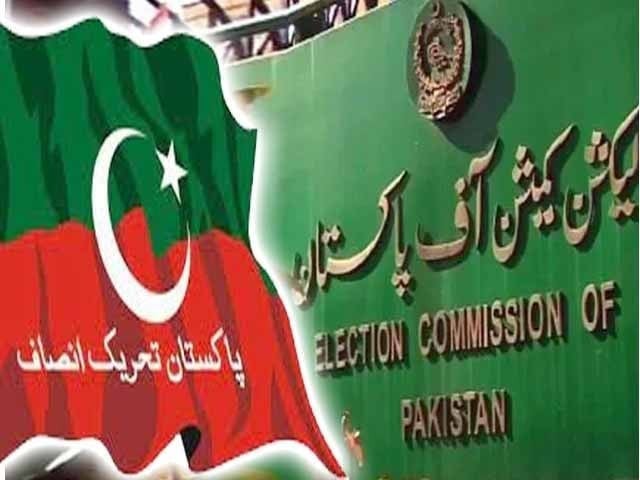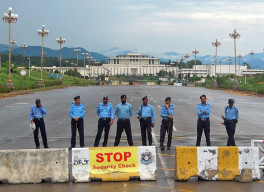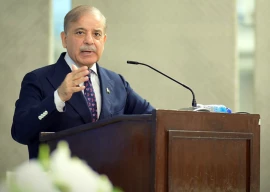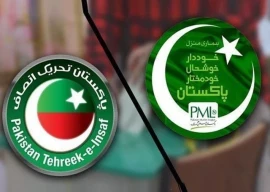
The Pakistan Tehreek-e-Insaf (PTI) was dealt another blow from the Election Commission of Pakistan (ECP) as the latter rejected four of its applications related to intraparty elections, it emerged on Friday.
The PTI's four pleas included an application seeking orders for the Federal Investigation Agency (FIA) to return records; a second sought a stay of proceedings till the Supreme Court passes an order on ECP's pending application in the reserved seats matter; the third also sought a stay till the SC issues a detailed verdict in the reserved seats' matter; and the fourth challenged ECP's jurisdiction.
The applications were dismissed by ECP's three-member bench comprising Nisar Ahmed Durrani, Shah Muhamamd Jatoi and Justice (Retd) Ikramullah Khan. The electoral watchdog was hearing the matter of submission of documents relating to PTI's intraparty elections which were held on March 3, 2024.
The ECP order, dated August 30, stated that PTI chairman Barrister Gohar Khan, Ali Uzair Bhandari and Faisal Fared submitted four separate applications seeking different directions. It revealed that ECP DG Law Muhammad Arshad Khan and ECP DG Political Finance Masood Akhtar Sherwani represented the commission. In the first application, PTI counsels asked ECP to issue directions to FIA to return the files, computers, hard-drives, electronic storage media files and documents, including intraparty election records, seized from the party's Central Secretariat on July 22, 2024.
Through the second application, PTI prayed to stay the present proceedings of intraparty elections before ECP till such time that an order is passed by the Supreme Court on the application filed by ECP seeking guidance of certain legal and factual issues in the appeal.
Through the third plea, PTI also requested to stay the present proceedings of intraparty elections till such time the apex court issues detailed judgment for the short order in the reserved seats case. On July 12, the Supreme Court issued a majority judgment and declared PTI not only a political party, but eligible for reserved seats in the assemblies.
While deciding both the applications, ECP members stated that it is "matter of record that the party under consideration has already delayed the matter and violated Subsection 1 of Section 208 and Section 209 of the Elections Act 2017."
"We are of the view that it would not be in the fitness of things to further delay the matter as prayed for by the respondents," the order read. "Their request is turned down and as such applications are hereby dismissed," it added.
Through the fourth application, PTI challenged the jurisdiction of the ECP on the grounds that the commission lacked the authority to conduct a roving inquiry into the matter of intraparty elections of PTI. The party's counsels argued that any inquiry into the alleged issues or irregularities in the conduct of the March 3, 2024 intra-party elections is beyond the powers and jurisdiction of the ECP.
The ECP's law director argued that the seats of 39 MNAs were assigned to PTI under Article 51(5) of the Constitution by the Supreme Court through the July 12 short order. However, he maintained that orders were given that the remaining 41 independent MNAs, out of 80, may within 15 working days of the order, file a statement duly signed and notarised, stating that he or she contested the General Elections as a candidate of the political party specified therein.
Admitting that ECP has filed a civil miscellaneous application before SC, seeking guidance on certain legal and factual issues in terms of paras seven to 10, the director revealed that "PTI is a political party in the record of ECP without any organisational structure because the case of intra-party election is still pending before the commission."




1730965998-0/BeFunky-collage-(27)1730965998-0-165x106.webp)
1731933289-0/BeFunky-collage-(68)1731933289-0-165x106.webp)





1731929357-0/Express-Tribune-(6)1731929357-0-270x192.webp)








COMMENTS
Comments are moderated and generally will be posted if they are on-topic and not abusive.
For more information, please see our Comments FAQ